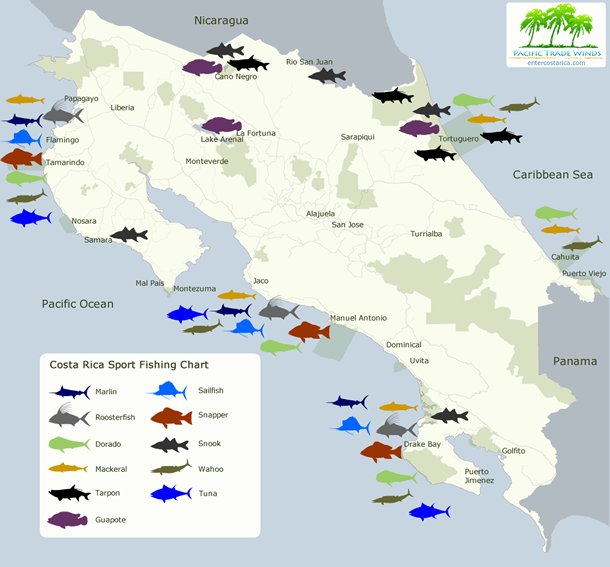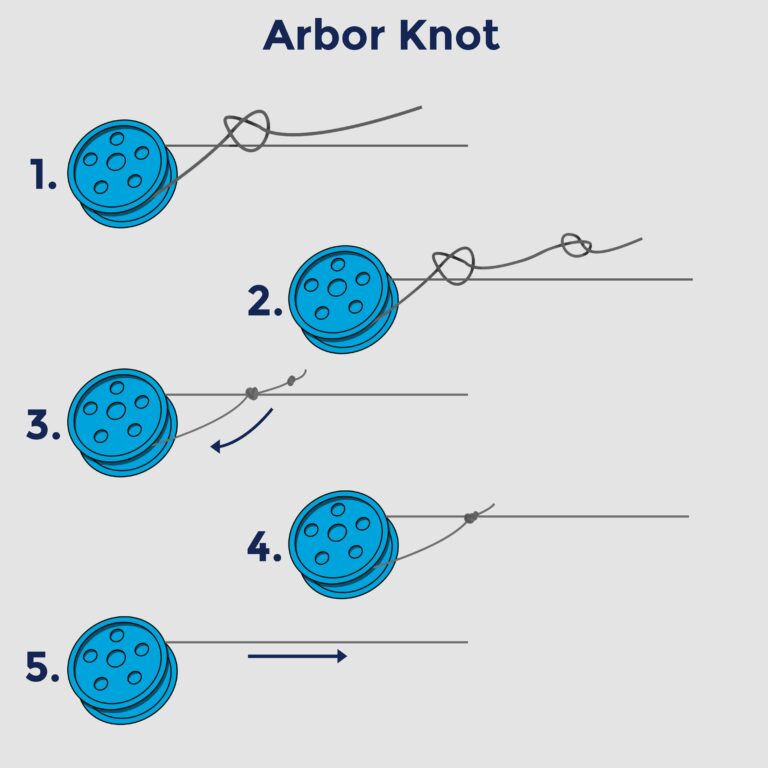Exploring The Legality Of Fishing In Canals: A Comprehensive Guide
Fishing in canals is a popular pastime for many outdoor enthusiasts. But before you cast your line, it’s important to know the legalities surrounding this activity. So, is it legal to fish in canals? The answer to this question may vary depending on your location and the specific canal in question. While some canals allow fishing under certain regulations, others may have strict rules prohibiting it. Understanding the laws and regulations governing canal fishing is crucial to ensure you’re staying within the bounds of the law while enjoying this recreational activity. In this article, we’ll explore the legal aspects of fishing in canals and provide you with the information you need to know. Let’s dive in!
Is it Legal to Fish in Canals?
Fishing is a popular recreational activity enjoyed by millions of people across the globe. While many anglers prefer fishing in lakes, rivers, or the open sea, others find canals to be an attractive option. Canals have a unique appeal, offering calm waters and a variety of fish species. However, before you cast your line into a canal, it’s essential to understand the legalities surrounding fishing in these man-made waterways.
The Legal Framework for Fishing in Canals
To determine whether it is legal to fish in canals, we need to explore the legal framework in different jurisdictions. Laws surrounding fishing can vary from country to country, and even within states or regions. It’s crucial to familiarize yourself with local regulations before embarking on a fishing trip in a canal.
National Laws and Regulations
In many countries, fishing regulations are established at the national level. These laws often govern the management and conservation of fish populations, as well as the licensing requirements for anglers. National regulations may include restrictions on fishing methods, gear, bag limits, and the protection of certain fish species.
It’s important to note that canals may be subject to specific regulations within national fishing laws. Some countries, recognizing the unique characteristics and value of canals, have created separate rules for fishing in these waterways. These regulations may address issues such as access points, designated fishing areas, and specific restrictions related to canals.
State/Regional Laws and Regulations
In addition to national laws, states or regions may have their own fishing regulations. These regulations often provide further details on fishing seasons, size limits, and other specific requirements. Canals, as part of the overall water system, may fall under the jurisdiction of state or regional authorities.
When planning to fish in a canal, it’s vital to check whether any additional regulations or restrictions apply at the state or regional level. This information can usually be obtained from the relevant fishing or wildlife agencies responsible for managing fisheries within the area.
Understanding Canal Ownership and Permissions
While national and regional regulations provide a general framework for fishing, it’s also important to consider the ownership and permissions associated with the canal itself. Canals can be owned and operated by various entities, such as government agencies, local authorities, or private organizations. The ownership status can influence the rules and regulations in place for fishing.
Government-Owned Canals
Many canals are owned and maintained by government agencies responsible for water management and irrigation. These government-owned canals may have specific regulations governing fishing activities. Some common considerations include:
- Permits: Anglers may need to obtain permits or licenses to fish in government-owned canals. These permits help authorities monitor fishing activities and ensure compliance with regulations.
- Access Points: Government-owned canals often have designated access points for anglers. It’s important to use these designated areas to ensure compliance with the rules and to respect the rights of other canal users.
- Restricted Areas: Certain sections of government-owned canals may be off-limits for fishing. These restrictions could be in place to protect sensitive fish habitats, nesting sites, or breeding grounds.
Privately-Owned Canals
Some canals are privately owned, either by individuals, businesses, or organizations. Fishing in privately-owned canals may require permission from the owner. It’s essential to contact the canal owner or management to understand their specific rules and requirements for fishing.
Privately-owned canals may have different regulations compared to government-owned canals. The owner’s priorities and objectives, such as profit generation or environmental preservation, can influence the fishing permissions and restrictions in place.
Environmental Considerations for Fishing in Canals
Beyond legalities, it’s crucial to consider the environmental impact of fishing in canals. Canals often serve important ecological functions, playing a role in water management, irrigation, and wildlife habitat. When fishing in canals, it’s essential to practice responsible angling to minimize negative environmental effects.
Conservation Practices
Conservation practices such as catch and release, responsible bait use, and proper fish handling techniques can help maintain healthy fish populations in canals. By releasing undersized or unwanted fish back into the water, anglers contribute to the sustainable use of canal resources.
Preventing Pollution
Canals are vulnerable to pollution, which can harm both fish populations and the surrounding ecosystem. Anglers should avoid littering and dispose of their waste responsibly. It’s crucial to follow guidelines on the use and disposal of fishing gear, including hooks, lines, and bait containers, to prevent accidental pollution.
Protecting Aquatic Habitats
Canals often support diverse aquatic habitats, providing breeding and feeding grounds for various species. When fishing in canals, it’s important to avoid damaging vegetation, reeds, or other important habitat components. Anglers should be aware of any restricted areas or sensitive zones and take care not to disturb them.
Fishing Etiquette in Canals
Respecting fellow anglers, canal users, and the local community is an essential aspect of fishing etiquette. By following these basic guidelines, anglers can ensure a positive and enjoyable experience for everyone involved:
Sharing Space
Canals are often used for various recreational activities apart from fishing, such as boating, kayaking, or walking. Anglers should be mindful of other canal users and allocate adequate space for each activity. Avoid casting lines across the entire width of the canal to minimize interference with other individuals enjoying the area.
Noise and Disturbance
Excessive noise and disturbance can negatively impact both the fishing experience and the overall environment. Anglers should maintain a reasonable noise level, avoiding loud music or unnecessary shouting. Respecting the tranquility of the canal allows for a more pleasant experience for everyone involved.
Leaving No Trace
When fishing in canals, it’s vital to leave the environment as pristine as possible. Anglers should clean up after themselves, taking any litter or waste with them when leaving. This practice ensures the canal remains clean and enjoyable for future visitors.
Fishing in canals can be an enjoyable and rewarding experience for anglers. However, it is essential to navigate the legal aspects associated with fishing in canals responsibly. By understanding and adhering to the relevant laws and regulations, respecting both the natural environment and the rights of other canal users, anglers can ensure a sustainable and enjoyable fishing experience.
Remember to always check the specific regulations governing the canal you plan to fish in, obtain any necessary permits or permissions, and follow conservation practices to preserve the health and integrity of the canal’s ecosystem. Happy fishing!
Frequently Asked Questions
Is it legal to fish in canals?
Yes, fishing in canals is generally legal, but it may vary depending on the specific canal and local regulations. It is important to check with the local authorities or relevant governing bodies to know the specific rules and requirements. Some canals may have restrictions on the types of fish that can be caught, the fishing methods allowed, and any necessary permits or licenses. It is crucial to adhere to the fishing regulations in order to protect the ecosystems and maintain sustainability.
What are the common regulations for fishing in canals?
The regulations for fishing in canals differ from place to place. In general, they may include restrictions on the size and number of fish that can be caught, the use of certain fishing gear or techniques, and specific fishing seasons or time limits. Some canals may require anglers to possess a valid fishing license or permit, while others may have designated fishing zones. It is essential to familiarize yourself with the local fishing regulations before casting your line in a canal to ensure compliance.
Can I fish in all canals within my area?
Not all canals may be open to fishing. Some canals may be privately owned or managed, and access for fishing could be restricted. Additionally, ecological or conservation reasons may limit fishing activities in certain canals. It is important to research and identify the specific canals within your area that are designated for fishing. Local governmental agencies or fishery authorities can provide information on which canals are open for fishing and any related rules or restrictions.
Do I need a fishing license to fish in canals?
In many areas, a fishing license is required to fish in canals. The exact requirement varies depending on local regulations and the jurisdiction governing the canal. Some places may offer different types of fishing licenses, such as daily or annual permits. It is necessary to obtain the appropriate fishing license or permit, if required, to avoid any legal issues and ensure compliance with the fishing regulations in your area.
Are there any restrictions on the types of fish I can catch in canals?
Yes, there may be restrictions on the types of fish you can catch in canals. These restrictions are typically in place to protect the native fish populations, maintain ecological balance, and prevent the introduction of invasive species. Certain fish species may be protected or prohibited from being caught in canals due to their conservation status. Local fishing regulations will provide information on which fish species are allowed to be caught and any size limits that apply.
Can I keep the fish I catch in canals?
Whether you can keep the fish you catch in canals depends on the local regulations. Some canals may have catch-and-release policies, requiring anglers to release the fish back into the canal unharmed. Other canals may allow limited or unrestricted fishing, meaning you can keep the fish as long as you comply with size and bag limits. It is crucial to check the specific rules for the canal you are fishing in to know whether you are allowed to keep the fish you catch or if they must be released.
Final Thoughts
In conclusion, the legality of fishing in canals varies depending on the specific regulations and policies set by local authorities. While some regions may permit fishing in certain canals, others may prohibit it entirely. Therefore, individuals interested in fishing in canals must thoroughly research and understand the laws applicable to their location. It is crucial to obtain the necessary permits and adhere to any restrictions in order to ensure compliance with the law and protect the natural environment. So, before casting a line, always verify if it is legal to fish in canals in your area.

